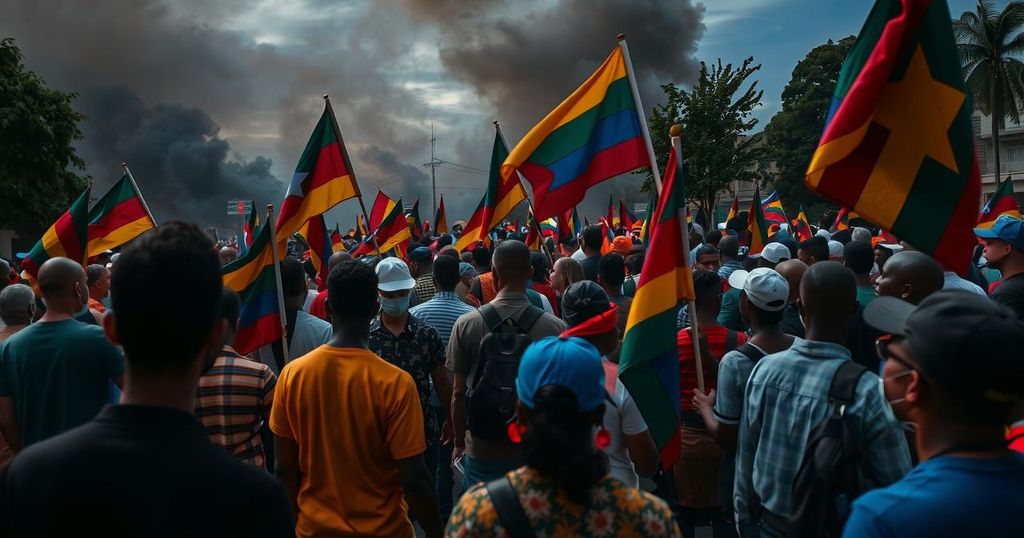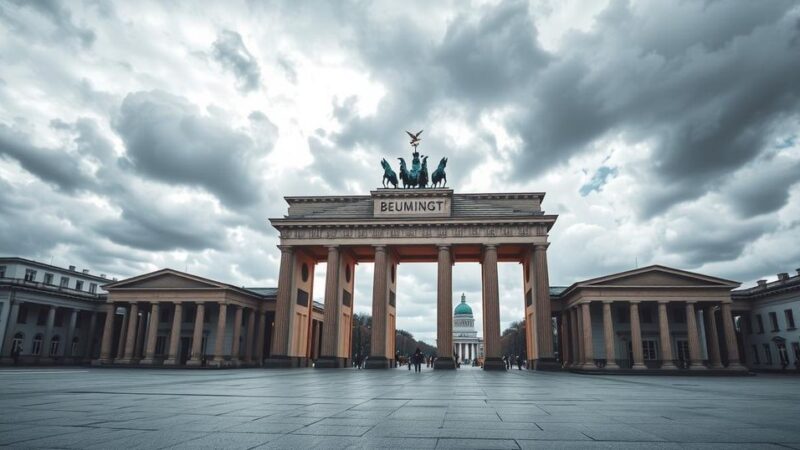Tensions in Mozambique have escalated following the fatal shooting of Elvino Dias, a lawyer, and Paulo Guambe, a Podemos party official, amid allegations of electoral fraud following the October presidential elections. The violence has prompted calls for protests from opposition leader Venâncio Mondlane, adding to the instability in the country post-election.
Tensions in Mozambique have escalated following the tragic shooting deaths of two key political figures associated with the primary opposition candidate, Venâncio Mondlane. Late Friday night, Elvino Dias, a lawyer with plans to contest the controversial election results, and Paulo Guambe, a senior official in the Podemos party, were ambushed in their vehicle while traveling through the capital city of Maputo. This incident has intensified the political atmosphere in a country still reeling from the contentious presidential elections that took place earlier this month, during which allegations of fraud marred the voting process. Mr. Dias was preparing to lodge a legal challenge against the results favoring the Frelimo party’s candidate, Daniel Chapo, who is currently reported to be leading in the ballots despite numerous independent observers flagging significant irregularities. The elections were critically important, marking President Filipe Nyusi’s departure after two terms. Throughout the electoral campaign, Mr. Mondlane’s charisma resonated with the young electorate, who have expressed their dissatisfaction with the political status quo. In response to the killings and feeling cheated out of a fair electoral process, Mr. Mondlane had called for a public uprising and a general strike, which was planned for the upcoming Monday. The violent ambush that resulted in the loss of Mr. Dias and Mr. Guambe’s lives has only fueled unrest and uncertainty in the nation, as calls for accountability grow louder.
Mozambique has been characterized by political strife, particularly during electoral periods. The recent presidential election on October 9 was notably contentious, with widespread claims of electoral fraud favoring the ruling Frelimo party, which has maintained control since the country’s independence. Leading opposition candidate Venâncio Mondlane gained significant traction among the young population, promoting broader participation and change amidst dissatisfaction with long-standing governance. The assassination of prominent figures such as Elvino Dias and Paulo Guambe has spotlighted the severe risks faced by political activists and has raised alarms about the potential for increased violence in the wake of the elections.
The assassination of political activists in Mozambique amidst a highly contested electoral process marks a critical moment for the country, highlighting the precarious state of its democracy and the risks that opposition figures face. As tensions rise, the call for protests and legal challenges against alleged electoral fraud may further destabilize an already tumultuous political landscape. The ramifications of these events underline the urgent need for a peaceful resolution and accountability within Mozambique’s governing systems.
Original Source: www.nytimes.com






